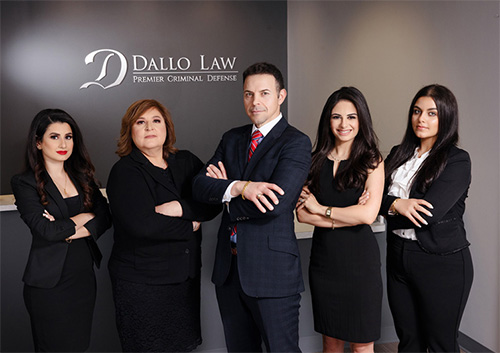In an effort to avoid law enforcement, illegal drug manufacturers have created substances similar to popular drugs to mimic their effects. These substances are often referred to as synthetic or counterfeit as they may have similar analogues to the original drug, but they ultimately are composed of different chemicals. In Michigan, there are three types of “fake” drugs which include synthetic drugs, counterfeit drugs, or imitation controlled substances.
Although the substances are different than the drugs they’re imitating—that doesn’t mean they’re legal. The state of Michigan prohibits the use, possession, or distribution of synthetic, counterfeit, or imitation controlled substances. Violation of this law could result in a misdemeanor or felony charge depending on the circumstances. That is why if you or someone you know has been charged with possessing synthetic or counterfeit substances, it’s imperative you contact an experienced criminal defense lawyer today.
Synthetic Drug Possession Lawyer, Oakland County | Michigan
Crimes involving synthetic, counterfeit, and/or imitation substances are often incredibly complicated and require extensive knowledge of chemistry and Michigan’s drug laws. Your best chance at fighting these charges is to secure the help of a skilled Michigan drug crime attorney who understands the technical information needed in these types of cases.
Find that attorney with J. Dallo of Dallo Law, P.C.. He understands the complicated nature of synthetic or counterfeit drugs as well as the common legal strategies that could work for your case. Call Dallo Law, P.C. today to set up your first consultation of charge.
Dallo Law, P.C. is located in Bloomfield Hills, but we accept clients throughout the greater Oakland County and Macomb County area including Pontiac, Troy, Oakland Charter Township, Waterford Township, Royal Oak, Southfield, Clarkston, Rochester, Rochester Hills, Novi, Auburn Hills, Clinton Township, Warren, Sterling Heights, Romeo, Utica, Fraser, and New Baltimore.
Information Center:
- What is a Synthetic or Counterfeit Drug Charge?
- Can You Go to Jail for Fake Drugs?
- Additional Resources
What is a Synthetic or Counterfeit Drug Charge?
It’s common knowledge that illegal use of certain drugs such as cocaine or heroin is prohibited under Michigan law. What you might not know is that Michigan also has a number of laws related to unclassified substances known as “synthetic” or “counterfeit” drugs. These substances either look similar to a well-known controlled substance or their chemical structure is similar to the outlawed drug.
Listed below is some additional information about synthetic, counterfeit, or imitation drugs.
- Counterfeit Drugs – If a substance is packaged or made to look like another drug, then it’s known as a counterfeit drug. Illegal drug manufacturers will use various techniques to create counterfeit drugs. They may create packaging exactly like the original substance or even use a mark/imprint to make the substance have the same appearance as the drug it’s mimicking. For instance, if you relabel Tylenol as Oxycontin and then sold it to another person, that would be trafficking counterfeit drugs.
- Synthetic Drugs – For years, offenders who manufactured drugs tried to avoid prosecution by creating substances made of similar analogues from popular illegal drugs. These substances have similar chemical structures to popular illegal drugs and tend to induce the same depressant, stimulant, or hallucinogenic effect of a Schedule I or II drug. However, the state of Michigan caught on and banned all use of controlled substance analogues. An example of synthetic drug would be spice, which is a chemical analogue to marijuana.
- Imitation Controlled Substances – An imitation drug is technically harmless but can still result in criminal charges. You can be charged with selling an imitation controlled substance if you represent some substance that isn’t even a drug as an illegal controlled substance. For example, if you sell oregano to someone and tell them it’s marijuana, then that would be a good example of an imitation controlled substance.
Can You Go to Jail for Fake Drugs?
Although imitation, synthetic, and counterfeit controlled substances are all considered to be “fake” drugs, they are still illegal under Michigan law. Using or possessing a synthetic drug could result in misdemeanor or felony charges based on the facts of the case. Even though a counterfeit substance technically isn’t illegal, if you traffic it you could be charged with a criminal offense.
To learn more about the penalties behind “fake drugs,” read more below.
Use or Possession of Synthetic Drugs
The use or possession of synthetic drugs is prohibited under the Michigan Public Health Code. According to Section 333.7404, a person shall not use a controlled substance analogue of any schedule 1,2,3, or 4 substance. Violation of this law will result in a misdemeanor punishable by:
- Up to 1 year in jail
- A fine of up to $1,000
Possession of a controlled substance analogue is also illegal under the Code. The statutes states possession any analogue in schedule 1,2,3, or 4 will result in a felony offense. The maximum sentencing you may face for possessing a synthetic drug includes:
- Up to 2 years in prison
- A fine of up to $2,000
Trafficking Synthetic or Counterfeit Drugs
In Michigan, trafficking is an intricate crime and if you take part in any aspect of it you could find yourself facing criminal charges. While most think of traditional drug trafficking, it’s possible you could be charged with trafficking if you were transporting counterfeit drugs or substance analogues. It’s important to note, you could be charged with drug trafficking if you are suspected of any of the following regarding synthetic or counterfeit substances.
- Delivering
- Manufacturing
- Creating
- Possessing with intent to deliver
The state of Michigan takes trafficking offenses very seriously. The lightest charge a person can receive is a felony, and in some cases, offenders are sentenced up to 15 years in prison. You can find the penalties for trafficking counterfeit or synthetic drugs under the Michigan Public Health Code Section 333.7402. Under the Code, the penalties are as follows:
- Trafficking a Controlled Substance Analogue (Synthetic Drug)
- Felony Offense – Up to 15 years in prison and a $250,000 fine
- Trafficking a Counterfeit Schedule 1 or 2 Drug or Cocaine
- Felony Offense – Up to 10 years and a $10,000 fine
- Trafficking a Counterfeit Schedule 1, 2, or 3 Substance Other than Narcotics/Cocaine
- Felony Offense – Up to 5 years and a $5,000 fine
- Trafficking a Counterfeit Schedule 4 Substance
- Felony Offense – Up to 4 years and a $2,000 fine
- Trafficking a Counterfeit Schedule 5 Substance
- Felony Offense – Up to 2 years and a $2,000 fine
Penalties for Imitation Controlled Substances
The penalties for crimes related to imitation controlled substances can be found under the Public Health Code Section 333.734. Although the penalties for possession, use or sale of an imitation substance is not as severe as a counterfeit or synthetic drug, they are still incredibly serious and could have a major impact on your life. Especially if you’re charged with trafficking, which is automatically a felony offense.
Under the Michigan Public Health Code, use or possession with intent to use an imitation substance will result in a civil infraction. You may be penalized with a fine of up to $100. However, if you are found guilty of manufacture, delivery, or possession with intent, then you’ll face a felony offense punishable by up to 2 years in prison and a fine of up to $10,000.
Additional Resources
Possession of a Controlled Substance Analogue – Visit the official website of the Michigan Legislature to read up on their Public Health Code regarding controlled substance analogues. Access the site to read up on synthetic drugs, the penalties for possessing them, certain penalty enhancements, and other important information.
Counterfeit Substance Crimes – Visit the official website of the Michigan Legislature to read up on their Public Health Code and its chapter on counterfeit substances. Access the site to read up on what counterfeit substances are defined as, the penalties for possessing them, penalties for manufacturing them, and the penalties for delivering them to someone else.
Oakland County Lawyer for Possession of Counterfeit or Synthetic Drugs
If you or someone you know has been arrested for a crime involving synthetic, counterfeit, or an imitation substance, it’s time to call Dallo Law, P.C.. J. Dallo and his legal team understand the serious nature of drug-related charges and can work tirelessly to defend your rights. We utilize personalized, innovative, and creative legal strategies to secure reduced or dismissed charges for our clients and can do the same for you.
Call Dallo Law, P.C. today at (248) 283-7000 to set up your first consultation. We are based in Bloomfield Hills, but we accept clients throughout the greater Oakland County and Macomb County area in Michigan.









